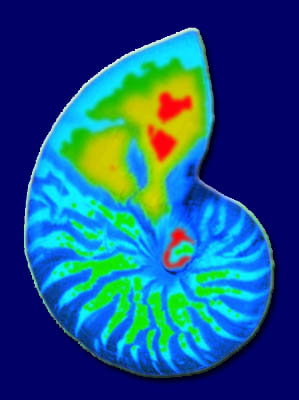
Comments: download (pdf).
Ref.: in UACE'2017, Hersonissos (Greece), July 2019 (invited).
Abstract:
This work aims at understanding the influence of upwelling in underwater acoustic
communications as observed in a shallow water environment on the coast of Cabo Frio
Island, Rio de Janeiro, Brazil, during the BIOCOM'19 experiment in January 14-18, 2019.
This sea trial is part of the project “Building of signaling with bio-acoustic noise
characteristics for underwater communications” (BIOCOM) whose objective is to characterize
biological acoustic signals and, based on such information, to transmit
communication signals compatible with the characteristics of the studied bio-acoustic signals.
The approach is to achieve frequency modulated transmissions during 4 days from a source at 2.6m
depth to a 4-hydrophones tetrahedron-like receiver array, located 1600 m away in range-dependent
transect with depth between 3 and 22 m. The deeper part of this transect subject to sudden water
column temperature change due to upwelling, therefore the study its effect on communication
performance is of interest for eventual adaptation and
improvement. The project goal is to develop signaling that observes the biological
information of the soundscape to then establish communications with low signal to noise ratio
in this environment, in an attempt of hiding, at some degree, the message in the noisy
soundscape. In such scope, a modulation scheme based on hyperbolic frequency swept chirps
is used, aiming to increase detection capability at the receiver. The results indicate that
upwelling can deteriorate the communications link due to occurrence of severe refraction
caused by the rise of cold water, that change significantly the water sound speed profile and
potentially increase the number of bit errors. The present work indicates that upwelling
phenomenon significantly affects the acoustic channel and the underwater communication
performance causing fluctuation of the signal level at the receiver, being a open field of study
the development of techniques that efficiently compensate, or at least overcome the main
effects of, the upwelling in shallow water acoustic propagation.
ACKNOWLEDGMENT: This work was funded under project BIOCOM, from CsF (Brazil).